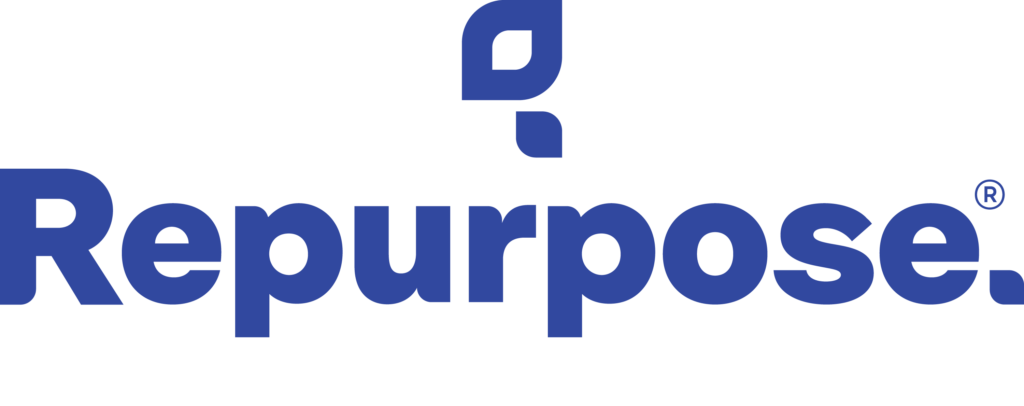The private company equity market is an inherently high-risk, high-reward enterprise, a positive Return on Investment (ROI) is not guaranteed, and historically not all taxpayers have been allowed to invest. Yet investments in innovative startups are indisputable keys to moving the national economy forward and creating jobs.
As a result, legislation was enacted to enable and entice investors to make these risky yet highly profitable investments. The investment and startup ecosystem has expanded significantly in the past decade, giving American taxpayers the opportunity to invest in these companies and benefit from capital gains tax incentives, where applicable, through a new investment method, crowdfunding.
Through the introduction and expansion of equity crowdfunding, more investors have been able to participate and receive QSBS tax breaks on their eligible stock. As a result of this new financial trend, investment platforms have been designed to promote, simplify, and streamline the public’s participation in crowdfunding.
While crowdfunding, as a whole, is still in its early stages, another crowdfunding branch specific to science and technology is emerging. This industry of crowdfunding gives investors the opportunity to engage and contribute to global scientific advancements. Additionally, it provides an alternative or additional source of funding for science and technology ventures.
What triggered the exponential growth in crowdfunding?
In 2012, the JOBS Act legislation was signed into law, encouraging investments in specific types of innovative small businesses and stimulating the economy after the recession of 2008. It allowed entrepreneurs and founders to advertise their startup capital fundraising. Also, the JOBS Act led to a wider pool of eligible investors as more taxpayers were able to take part in these investment opportunities.
In signing the JOBS Act, former President Obama spoke highly of the legislation and hoped it would spark a series of positive and economic-boosting outcomes on the national level:
“And for start-ups and small businesses, this bill is a potential game-changer. Right now, you can only turn to a limited group of investors — including banks and wealthy individuals — to get funding. Laws that are nearly eight decades old make it impossible for others to invest. But a lot has changed in 80 years, and it’s time our laws did as well. Because of this bill, start-ups and small businesses will now have access to a big, new pool of potential investors — namely, the American people. For the first time, ordinary Americans will be able to go online and invest in entrepreneurs that they believe in.”
Regulation Crowdfunding (Regulation CF) was enacted four years after the JOBS Act. This law gave private early-stage companies access to the entire pool of American taxpayers’ venture capital and eased restrictions on how companies could raise capital.
Previous to Regulation CF, investors could only participate and contribute to the private equity market if they met certain requirements that made them accredited investors. Previously, a person’s net worth was the sole criterion for qualifying as an accredited investor, preventing many American taxpayers from participating in startup investments.
To modernize the accredited investor criteria, the Security and Exchange Commission (SEC) adjusted the components in December of 2020. With these changes to qualification requirements, the pool of eligible investors has been further expanded, thus paving the way for the meteoric rise of crowdfunding investment ventures.
What is Propel(x) and what differentiates this investing platform?

Propel(x) is headquartered in San Francisco, California. It was founded in 2014 by Lisheng Wang and Swati Chaturvedi, who both previously founded the MIT Alumni Angel Investors group together. The crowdfunding platform offers investors opportunities to invest in highly-vetted deep tech and science-centric startups that focus on making medical discoveries and contributing to cutting-edge technology and innovation.
Many investors on this platform label their financial contributions “impact investments” because if these deep tech early-stage companies succeed, they could benefit humanity in defined ways and impact furniture generations.
Propel(x) investors must be considered accredited investors compared to Regulation CF, which is available more broadly to the general public.
Propel(x) selects the startups listed on their platform based on highly-specific criteria. The platform uses its network of Silicon Valley venture capitalists and angel investors to source their carefully sourced investment opportunities.
For a startup to be considered, accepted, and featured on the Propel(x) platform, the company must be centered on scientific innovation and discovery, known as “deep tech.” The startup must also completely own its intellectual property, have extensive data and research supporting its innovative thesis or have a prototype, and be in partnership with research institutions, labs, or incubators.
What types of startups are funded on Propel(x)?
Propel(x) focuses on startup companies in the following industries:
- Energy and Green Technology
- Aerospace and Transportation
- Life Science
- IT and Communications
- Industrial Technologies
- Financial Services
Propel(x) funds specific innovative startups from early-stage to late-stage (Series A to Series D and beyond). Propel(x) regularly co-invests in deals with a lead Venture Capital (VC) fund. Startups that raised capital on Propel(x) have also raised capital from leading VC funds such as Dreamit Ventures, Softbank, Founders Fund, and many others.
Here are just a few of the businesses that raised capital on Propel(x):

Repurpose is a company working to reduce single-use plastics by increasing awareness of the negative environmental impact and offering solutions and replacements for consumers with their unique products. Repurposed has over 17K locations, and it is shaking up the tableware industry.
Several other notable investors in Repurpose include:
- Chaifetz Group – 23 investments and 3 exits
- SWAT Equity Partners – 20 investments and 2 exits
- Engel Ventures – 12 investments and 1 exit

Brelyon is a startup developing the Ultra Reality (UR) display technology that brings high fidelity immersive experience to everyday use. Brelyon’s technology addresses the size limitations of existing computer monitors and the lack of comfort and poor image quality of head mounted displays seen in the Virtual Reality (VR) and Augmented Reality (AR) space. Recently partnered with LG Display, Brelyon will integrate LG Display’s P-OLED technology into its ultra-immersive, virtual monitors.
Several other notable investors in Brelyon include:
- EvoNexus – 231 investments and 31 exits
- Franklin Templeton Investments – 160 investments and 54 exits
- The E14 Fund – 59 investments and 3 exits

BlockApps is the world’s leading Blockchain-as-a-Service platform for enterprise with over 200 customers and raising over $41M in their most recent funding round. Built on the Ethereum protocol, BlockApps is the first Microsoft certified Blockchain solution and is deployed on major cloud provider platforms such as Microsoft Azure and Redhat OpenShift. Customers have used BlockApps to build solutions for finance, insurance, supply chain, energy and healthcare, to name a few.
Several other notable investors in BlockApps include:
- AAF Management Ltd – 110 investments and 15 exits
- Liberty City Ventures – 56 investments and 9 exits
- Morgan Creek Capital Management – 25 investments and 4 exits

Ligandal Inc is a biotech company specializing in regenerative medicine and pandemic defense technology. The company utilizes nanotechnology to impact genetic medicine practices by developing targeted and personalized therapies. They also combine AI and supercomputing technology to impact and further immunotherapy, vaccine technologies, and genetic editing and therapy.
Several other notable investors in Ligandal Inc include:
- Y Combinator – 4,380 investments and 428 exits
- EASME – EU Executive Agency for SME’s – 3,687 investments and 179 exits
- Techstarts – 3,571 investments and 363 exits
- MassChallenge – 3,048 investments and 154 exits
- 500 Startups – 2,779 investments and 328 exits
Are investments made through crowdfunding eligible for tax incentives such as QSBS?
Crowdfunding enables prospective investors the opportunity to fund early-stage companies and provides QSBS benefits for tax-free gains, where eligible.
QSBS is a provision of Section 1202 of the Internal Revenue Code (IRC) that allows a tax exclusion on capital gains up to 100% if certain criteria are met. The requirements are likely to align with those of early-stage companies that seek funds via crowdfunding.
Most crowdfunded startup companies have not yet reached the $50 million gross asset threshold, which is one of the primary eligibility factors. Along with that, entity and industry type are also important factors. Learn more about the eligibility criteria.
The eligibility requirements for Qualified Small Business Stock, while lucrative, are complex and must be monitored over a minimum 5-year holding period in order to ensure that shareholders can claim the exemption with confidence.
How do I know if a Propel(x) investment is QSBS eligible?
Many startup businesses funded on crowdfunding platforms, like Propel(x), could potentially be QSBS eligible.
Due to the intricate and highly nuanced nature of the QSBS regulations within the tax code, it’s imperative for investors to research their current and potential investments in various startup companies to ensure eligibility.
If you have questions about the QSBS eligibility of your investment stock that has been invested on the Propel(x) platform, there are options for learning more:
- In a recent webinar, Propel(x) founder, Swati Chaturvedi, discussed the tax incentive benefits for angel investors in the startup ecosystem with Tim Kelly, CFO of Kelly Ventures. Tim Kelly is a key player in helping LLC structures in the mid-class range to angel investment groups to jumpstart funding options.
- Investors have the opportunity to ensure that their investments are being funded into a QSBS-eligible company. Some companies make QSBS representations in their share purchase agreements. However, note that these reps are sometimes stated with limited evidence backing the claim.
- Investors can reach out directly to company management to inquire about specifics and details of the company’s QSBS eligibility requirements.
- Investors can also reach out to our team at Capgains.com. If you would like our assistance in determining if your investments or potential investments on crowdfunding platforms are QSBS eligible, fill out this form to help us better serve your investment needs and questions.
Crowdfunding, QSBS, and 1045 Rollovers
Under another provision in the tax code, Section 1045, gains that have not met the 5-year holding period may be rolled into other QSBS stock to continue working toward it. In other words, an investor does not have to lose the capital gains exemption if a sale occurs prior to meeting the 5-year holding period. There is, however, only a 60-day window in which the taxpayer can rollover these gains into an eligible new company.
Investing through crowdfunding platforms allows investors to identify companies that qualify for QSBS and are currently raising funds for a potential rollover.
Reach out to our team if you are in a position with QSBS capital gains to rollover and connect with Propel(x) for current rollover opportunities.
At Capgains.com, we help investors and corporations understand QSBS tax exemption criteria by ensuring shares are eligible as well as monitoring QSBS stock eligibility. You can count on our team to provide you with guidance and support throughout the lifetime of your eligible stock.
This article does not constitute legal or tax advice. Please consult with your legal or tax advisor with respect to your particular circumstance.

